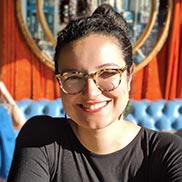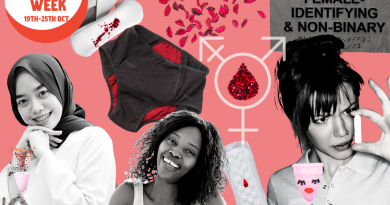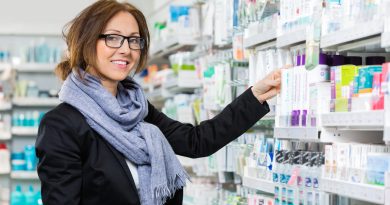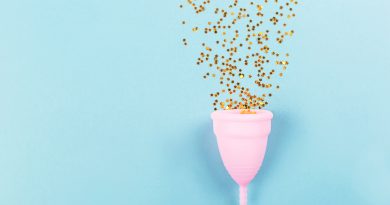To save the world, empower women
While concerted efforts by concerned stakeholders has led to significant developments in sustainable menstruation in recent years, in order for these products to be adopted, innovation must be accompanied by comprehensive period education. The environmental NGO City to Sea is spreading the word about sustainable alternatives through their ‘Plastic Free Periods’ initiative, which incorporates environmental advocacy into female health education. In recognizing that environmentally sustainable products must not only be available, but also accessible, City to Sea is working to improve the ability of women from all walks of life to care for both their bodies, and the environment.
As our awareness and understanding of the climate and ecological emergencies grow, more and more community groups, charities and individuals are working to equip younger generations to live sustainably. Education that explores nature connection, body literacy, emotional intelligence, mindfulness, compassion and inclusivity, personal and community empowerment and global issues all have crucial roles to play in our journey to creating a new way of living together.
With a challenge of this scale it’s crucial that we understand the root causes of our unsustainable behaviours, which are largely rooted in social injustice and inequality. In 2017 a coalition of scientists, economists, policymakers, researchers, and business people published Project Drawdown, ranking the top 80 ways to tackle climate change. Many people were surprised to see that Number 6 on this list was Educating Girls, and number 7 was Family Planning [1].
City to Sea, a non-profit organisation who campaign to prevent plastic pollution at source, are combining female health education with environmental awareness-raising through their campaign Plastic Free Periods [2].

Historical and cultural taboos and stigma around menstruation have prevented people from receiving proper education about what is happening in their bodies. People are unaware of what’s normal, what products they can use to help manage their periods and how those products might impact the environment.
The toxic combination of societal shame and lack-of-education has created a growing environmental problem.
- Currently a staggering 4.3 billion tampons, period pads and liners are used in the UK every year [3] with most of them containing single-use plastic in some form.
- Research shows that disposable menstrual pads sold by most big brands contain around the same amount of plastic as 5 carrier bags [4]. Tampons also contain a plastic weave, which is hidden from citizens.
- An estimated 1.5 – 2 billion of these are flushed in the UK every year [5], creating sewer blockages and ending up as pollution on our beaches or in our ocean.
- Menstrual products are now the fifth most common item found on Europe’s beaches – more widespread than single-use coffee cups, cutlery, straws or even plastic bags [6].
What a bloody disaster! But the tide is turning. There are now a huge number of sustainable products helping people across the globe to turn the tide on plastic pollution from periods. These products include organic/plastic-free disposable tampons, pads and liners; reusable tampon applicators; menstrual cups, period pants and washable pads.
Campaigns like City to Sea’s ‘Plastic Free Periods’ [2], the Women’s Environmental Network’s ‘Environmenstrual’ [7] and Ella Daish’s petition to supermarkets [8] have been working to make environmentally friendly period products more accessible for all, through engaging high-street retailers, manufacturers, the NHS, government, community groups and schools.
- The Environmenstrual Coalition – a group of more than 60 organisations working to improve availability and access of sustainable menstrual products in the UK [9] have successfully worked with both Aldi [10] and Sainsburies [11] to ditch single-use plastic from their tampon applicators.
- More than 8 new plastic-free products have been introduced across 5 major high-street retailers in the past year.
- In the past 5 years google searches for ‘menstrual cup’ have increased by 300% [12].
- Hey Girls’ Pads for Dads [13] campaign engaged fathers with the subject of periods, providing a guide to help start the conversation with their daughters.
- City to Sea campaigned for the Department for Education to offer plastic-free products to schools as part of their period poverty scheme, and now schools can order organic tampons and pads, reusable pads and menstrual cups for students [14].
- City to Sea’s free school program Rethink Periods will have reached more than 31,000 students in the last 6 months alone [15].
Plastic Free Periods coordinator Jasmine Tribe said “It’s been amazing to see this movement snowball in the last few years. Not only are we empowering women to take care of their bodies and the planet, we are also working collaboratively and across sectors, creating strong bonds and community. We can only have environmental justice when we have social justice, and for social justice to manifest we need gender equality.”
To find out more about plastic-free periods, access discount codes and read advice head over to www.citytosea.org.uk/plasticfreeperiods.
END
NOTES
TO EDITOR
About City to Sea and Plastic Free Periods:
City to Sea is an award-winning not-for-profit, campaigning to stop plastic pollution at source. They’re tackling the single-use plastic items found most commonly on our beaches and in our oceans by providing practical, solutions-focused initiatives and advocating reduce and reuse over single-use.
City to Sea’s Plastic Free Periods campaign aims to prevent plastic pollution from our periods by mainstreaming reusable and plastic-free disposable products and raising awareness that no period products should be flushed. Plastic Free Periods was launched in 2017 with a video that was viewed over 3 million times in the few weeks after publishing on facebook. Through Plastic Free Periods City to Sea lobbies government, works with the NHS, trains school teachers, influences retailers and educates the public. The campaign has been featured on BBC Women’s Hour, The Guardian, Metro, Positive News, Surf Girl and many more.
To find out more about plastic-free periods, access discount codes and read advice head over to www.citytosea.org.uk/plasticfreeperiods.
www.citytosea.org.uk @citytosea_
CONTACT
For any further comment and to arrange interviews please contact Plastic Free Periods campaign coordinator Jasmine Tribe: jasmine@citytosea.org.uk 07766306399.
REFERENCES
[2] www.citytosea.org.uk/plasticfreeperiods
[3] https://www.london.gov.uk/sites/default/files/plastics_unflushables_-_submited_evidence.pdf
[4] https://natracare.com/blog/how-much-plastic-in-sanitary-pads/
[5] Marine Conservation Society, Pollution Policy and Position Statement
[6] https://ec.europa.eu/environment/circular-economy/pdf/single use_plastics_impact_assessment.pdf
[7] https://www.wen.org.uk/our-work/environmenstrual/
[8] https://www.change.org/p/make-all-menstrual-products-plastic-free
[9] https://www.wen.org.uk/coalition/
[10] https://metro.co.uk/2020/01/23/aldi-scraps-plastic-tampon-applicators-campaign-12109420/
[12] https://www.lanesfordrains.co.uk/global/news/future-period-care-products-will-look-like-20-years/
[13] https://www.independent.co.uk/life-style/health-and-families/pads4dads-campaign-periods…
[14] https://www.citytosea.org.uk/free-period-products-program-launched-in-schools/
[15] www.rethinkperiods.org.uk




